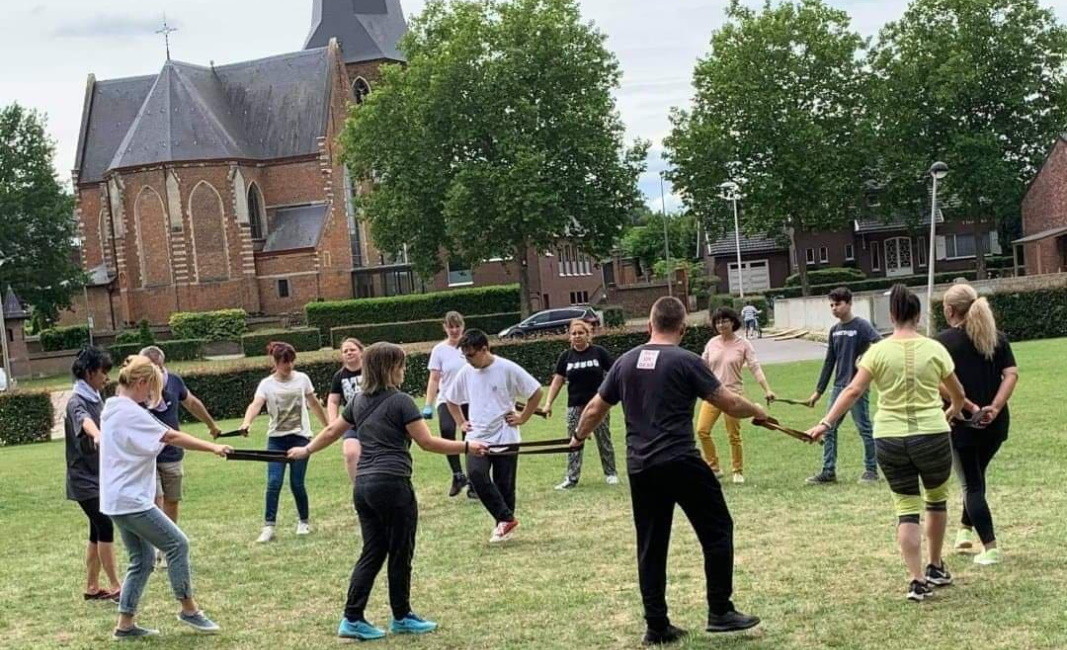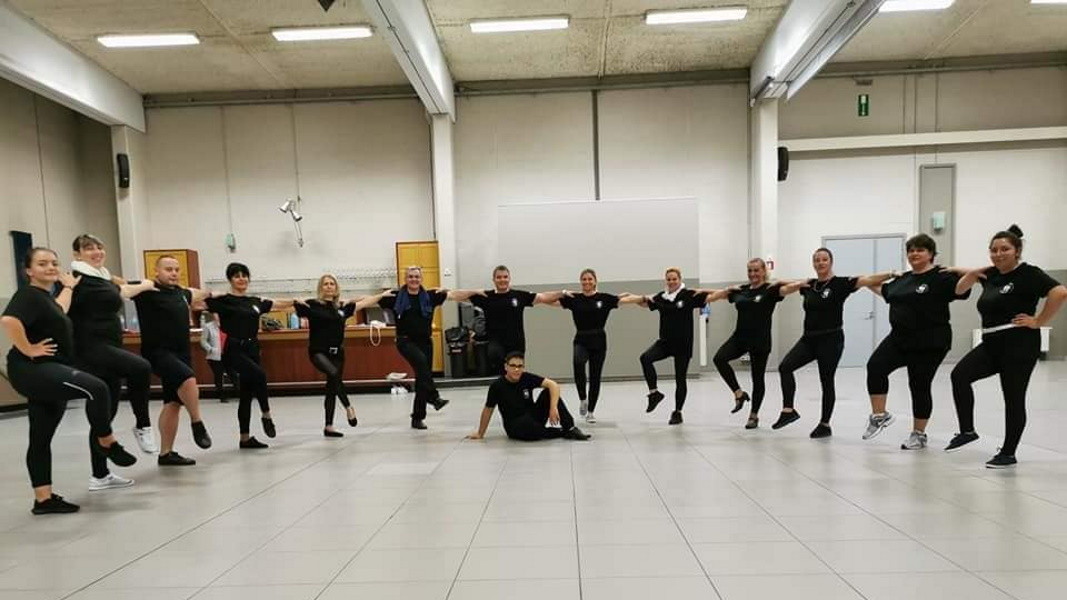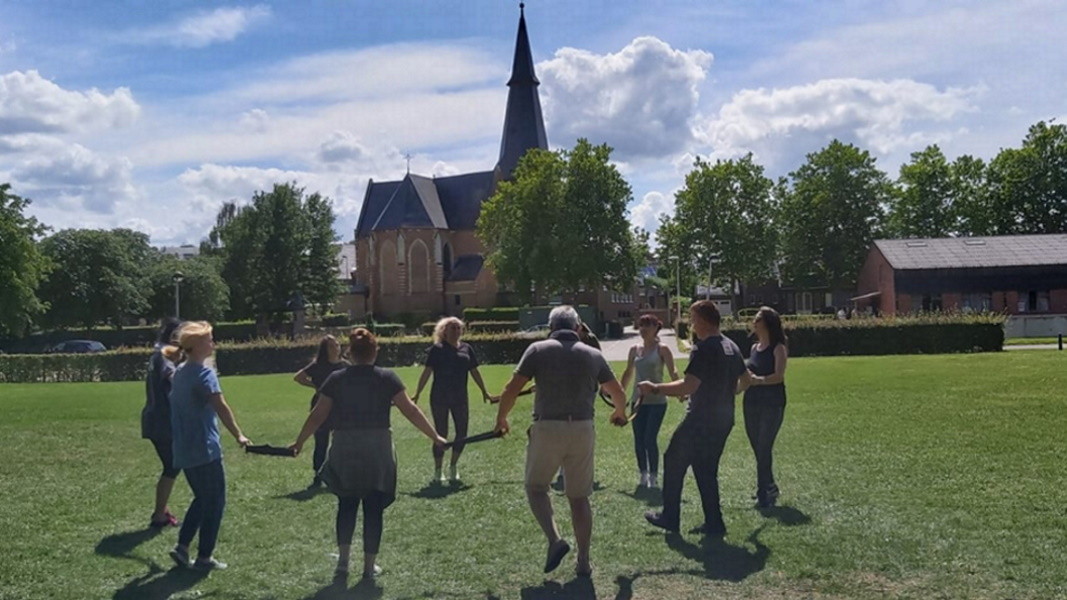The strong connection with Bulgaria is in our genes. It becomes even stronger under certain circumstances. There are many examples in folklore, history and literature, describing the nostalgia for our homeland.
Nowadays, many Bulgarians are scattered around the world in search of better living and working conditions. Miroslav Enev, who has been living with his parents in Belgium for 4 years, is among them. Miroslav is only sixteen, but he can already feel how much Bulgaria means to him. He contacted with Radio Bulgaria to tell us how and why he had formed a Bulgarian folk dance group in Belgium. Due to the measures adopted against the spread of coronavirus, in 2020 the folk dance clubs suspended their meetings for a long time. However, each time the authorities ease the restrictions, the members of Miroslav's dance troupe "Rhythms-Limburg" gather and study the steps of many horo chain dances from different Bulgarian folklore regions:
"In January 2020, I decided to start a folk dance group in the town of Zonhoven (Limburg Province), located 85 km away from the Belgian capital”, says Miroslav. “I formed the dance group, because I wanted to meet with more Bulgarians every Sunday. Thus, I have the opportunity to dance, talk and enjoy communicating with my compatriots. We have managed to learn how to dance 15 to 20 horo chain dances during the coronavirus pandemic and we perform them with plenty of love."

As a child, Miroslav used to dance in the folklore ensemble "Rhythm" in the town of Silistra, which is located near his hometown Alfatar. This ancient Bulgarian town is part of the Dobrudzha folklore region. Agriculture and people's lifestyle have left a significant imprint on the local Dobrudzha dances. People from this Bulgarian region squat when they are dancing. For many years, folk dances were an important part of peoples’ lives and nowadays we are witnessing renewed interest in folklore traditions.

In Miroslav’s words, Bulgarians in Belgium devote part of their time to rehearsals, because they feel that they are part of the Bulgarian community. "We dance and everyone shows something from their region or tells stories about some remarkable places they have visited in Bulgaria, which broadens our horizon. We dance and study different dance steps”, explains Miroslav.
There are folk dance groups formed in other Belgian cities, but due to the coronavirus restrictions introduced in this country, the groups’ members have not been able to meet each other this year. "When the anti-epidemic measures are relaxed, we will be with them again and we will dance," Miroslav went on to say and added:
"So far, we are only dancing in the rehearsal hall. We have not had the opportunity to go on stage and show the diversity of Bulgarian folklore. We have the ambition to show the local community that Bulgarians are good people and deserve popularity. My Belgian friends at school want to visit Bulgaria, but the older people show more negative attitude towards foreigners and when they hear about our country, they become even less communicative. Bulgarians are much more open to people, we ask ourselves many questions and are sociable. That is why it is very important to preserve the Bulgarian language no matter where we live. "

English version: Kostadin Atanasov
Photos: FacebookAn exhibition in the National Assembly in Sofia traces the life and work of Exarch Stefan I of Bulgaria – a cosmopolitan figure who went down in history as a champion of the distance of priests from political life, as well as for his..
One step forward, two steps back. This has been of the dance of Bulgarian-Serbian relations, according to Darko Anachkov, chairman of the only Bulgarian organization in the city of Vranje. In an interview with Radio Bulgaria, he..
Women's working conditions in Bulgaria are among the worst in the EU, with the country ranking 17th with a score of 7.25 out of 10 possible. The result is due to the small number of women in management positions, according to an analysis by the..

+359 2 9336 661
